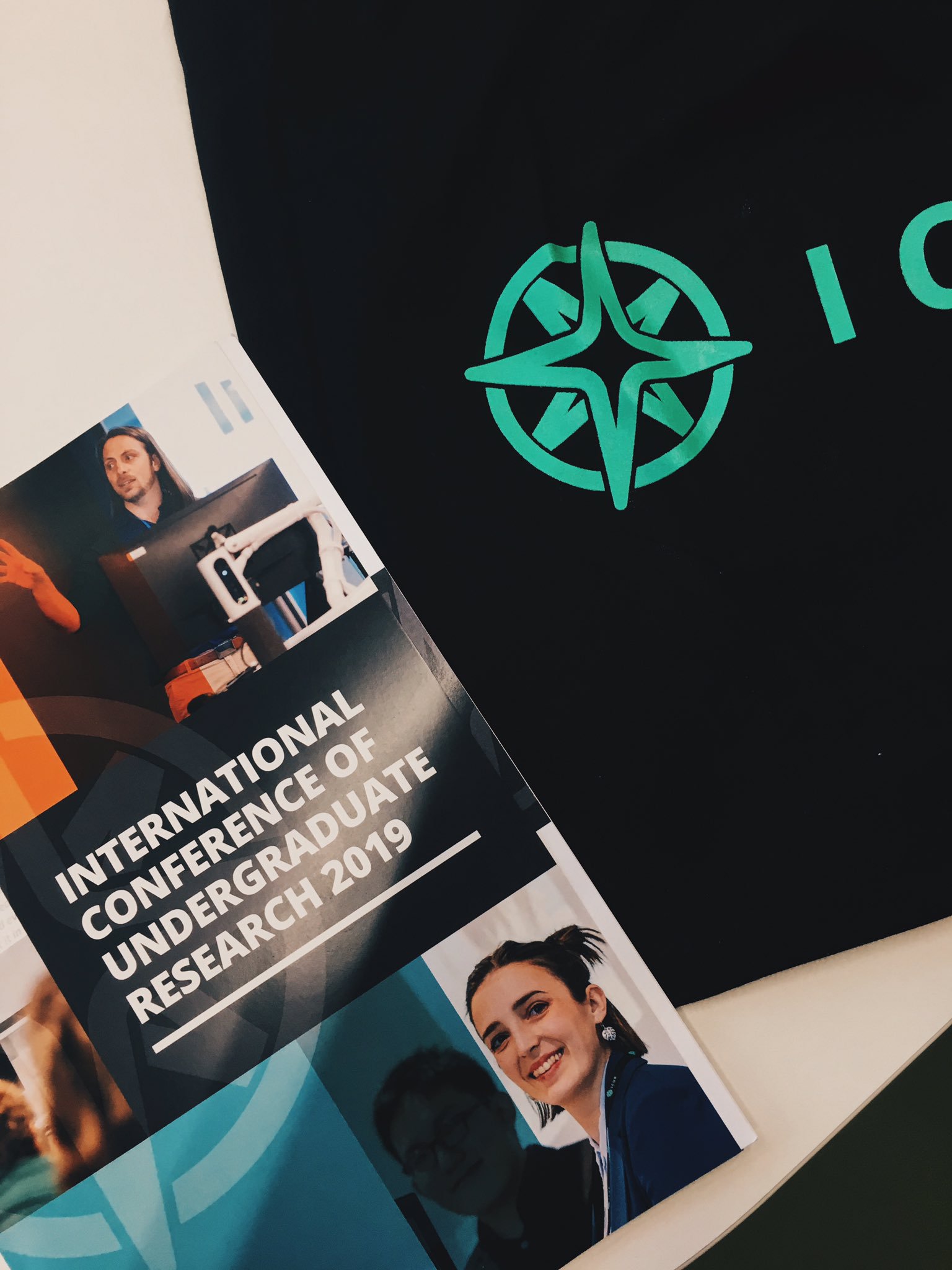Liberal Arts students showcase research at ICUR 2019

The annual International Conference of Undergraduate Research (ICUR) 2019 took place on the 24th and 25th of September in The Oculus building on campus, showcasing the best undergraduate research from around the world via internationally video-linked sessions.
Supported by the Monash Warwick Alliance, nine institutions from across the globe, with students presenting from the UK, Australia, Belgium, Malaysia, Singapore, Spain, South Africa and the USA, shared their research in a transdisciplinary setting that encouraged presenters to rethink their own work in an international context.
A number of students from the Liberal Arts department took part in the two day conference, presenting their work to their own peers within the University, and to those from partner institutions too. Find out how they found their ICUR 2019 experience below, and be inspired to join the conversation next year.
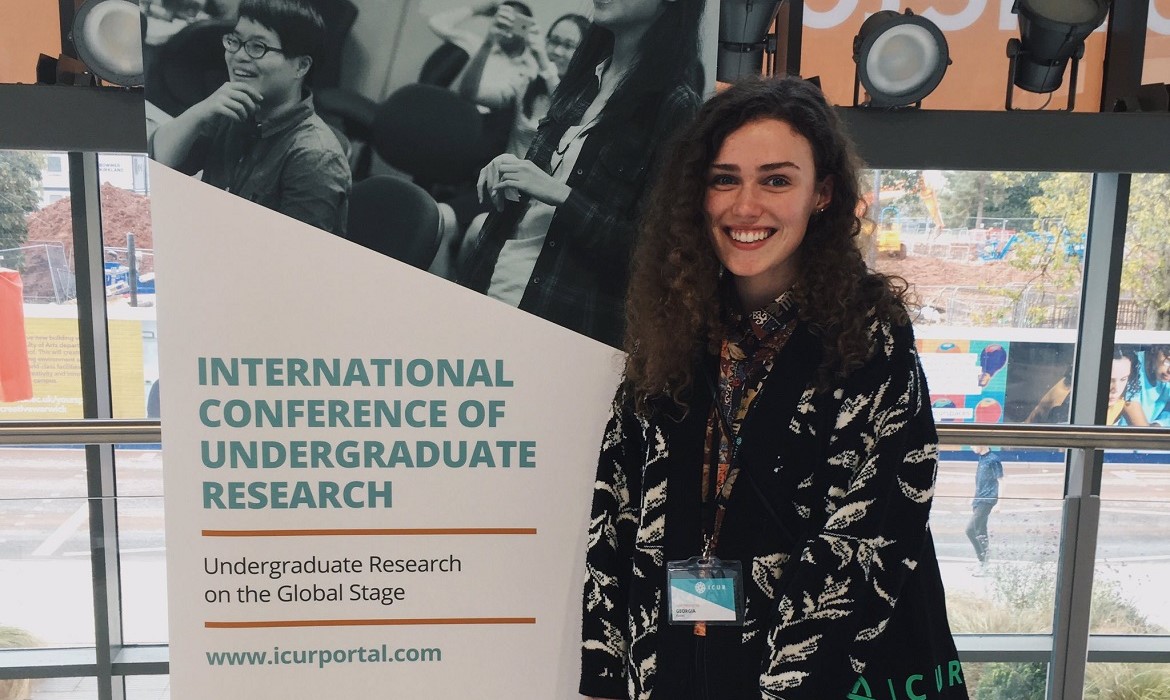
Georgia Evans
Second year Liberal Arts student
Research title: The 'Facts of Biology': Evaluating the Role of
Positivist-Empiricist Science in Understanding Homosexuality
In conversation with: University of Leeds
The research I presented at ICUR expanded on the concepts explored in one of our first year Liberal Arts modules, 'Science, Society and the Media', namely, the idea that the objective and often deterministic nature of biological science leaves it particularly susceptible to being used to legitimise social domination or inequality. Specifically, as a Liberal Arts programme encourages, I chose to apply this concept to an area in which I am particularly interested - the inequitable treatment of sexual minorities - regarding in particular how empirical science can and has been used to justify this treatment.
Having conducted this research on an interdisciplinary basis in itself (as is the nature of work in the Liberal Arts), combining ideas and academic readings from biological science, philosophy of science, history, sociology and psychology, the real appeal of ICUR for me was to share this work on an equally interdisciplinary platform. Hearing opinions and questions regarding my research from academics here at Warwick and at the other universities taking part - academics from an array of disciplinary backgrounds and specialisations - allowed me to consider my work as received in an even wider array of contexts, including its implications for other academic fields and even how I could develop it further to respond to issues raised.
Equally, it was fulfilling to be presented with the opportunity, in friendly and encouraging circumstances, to provide the same feedback and discussion prompts regarding the research of others- some of which, due to its discipline, I would perhaps not have previously imagined myself being so able to engage with. Therefore, my advice to future students participating in ICUR would really be to remind yourself that the other participants in the conference are in your position: just as eager to share their work with you, and just as excited about hearing your research. This knowledge should encourage you to watch as many panels as possible across the experience and to engage as much as possible with what you're hearing. You're likely to surprise yourself!
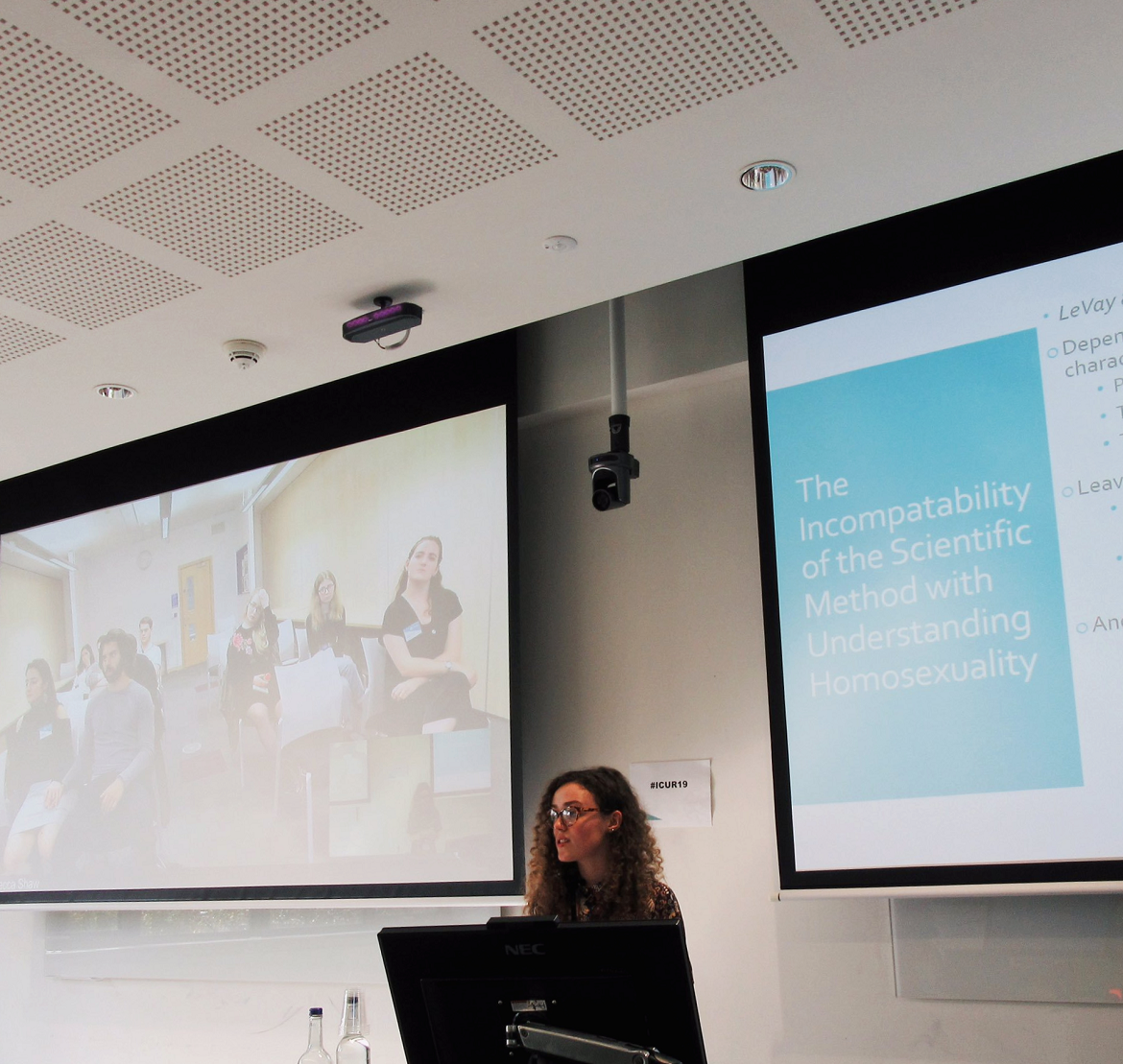
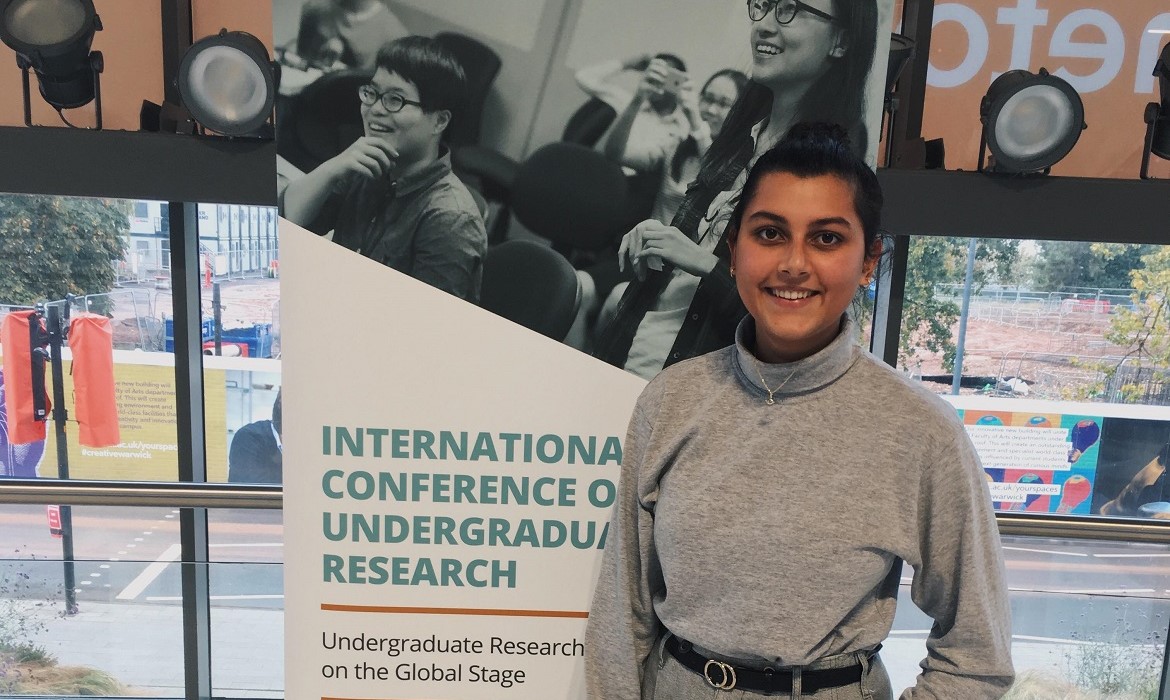
Anaël Daoud
Final year Liberal Arts student
Research title: Hijab and laïcité in Contemporary France: The Body of the
French Muslim Woman, a Site of Contestation Colonised by Femonationalism
In conversation with: Vrije Universiteit Brussel
What's the value in presenting at ICUR, which has such diverse interdisciplinary discussions?
The range of subjects was quite incredible, covering any discipline or presenting fascinating point of views on well-known subjects. I found myself getting in touch with some of the presenters, as their research was linked to mine. Exchanging knowledge with people from all over the world gave me a new insight on my own brain - how I think and reflect on an issue, which litterature tradition I use and which methodologies are available to me yet could help me make the most out of my research.
Was the research you presented at ICUR linked to module(s) you've studied with Liberal Arts?
My research aligns itself with my Liberal Arts degree as a whole. It is a mix of my First Year - which laid the foundation for my theoretical and methodological academic background, my Second Year - which focused my personal interests - and my Year Abroad, where I felt confident enough to narrow my research very specifically. My ICUR research in particular is the continuation of an essay I wrote while on Erasmus in Amsterdam. One of my arguments felt more superficial than the others, so I decided to apply to ICUR in order to delve further into it, using a combination of History, Sociology, Politics, Philosophy, Anthropology and History of Art.
What's your advice for other students who might be interested in getting involved next year?
Go for it! You have nothing to lose, not even your pride or your credibility. On the contrary, you will find yourself more confident and secure, more legitimate. I know that we all have this imposter syndrome going on, but people are not there to judge you. They all come from such different fields that there is no room left for doubting yourself, or your research.
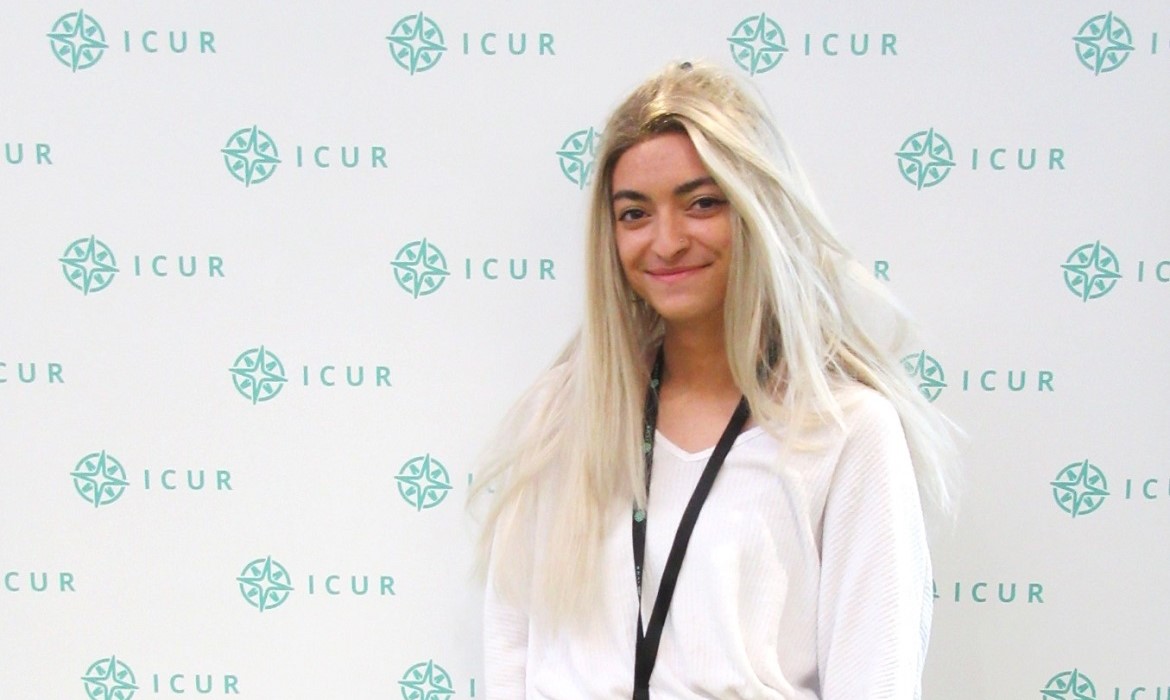
Ceara Webster
Final year Liberal Arts student
Research title: Deconstructing the sustainable development
paradox and reconstructing its potentials
In conversation with: Nanyang Technological University
What's the value in presenting at ICUR, which has such diverse interdisciplinary discussions?
ICUR is a chance to learn in multiple senses. You present your own research in a transdisciplinary setting, and you also learn from your peers presenting. I enjoyed learning things that lay outside the disciplines I have explored in Liberal Arts. For instance, I haven't studied medicine or biology, and there was an incredibly insightful piece of research that alerted me to issues in diversity and inclusion of Black, Asian, and Minority Ethnic (BAME) students undertaking medical degrees – inside their institution and in the hospital setting. It was also insightful to hear perspectives from different corners of the world, and these may bring an insight to the table previously unconsidered.
It's as much about what you present and learn on the journey, as it is about what you learn at the conference from your peers. The most valuable insight that can come from a transdisciplinary conference is the ability to broaden one’s perspective and for it to change the way you consider certain phenomena.
Was the research you presented at ICUR linked to module(s) you've studied with Liberal Arts?
My research was linked most closely to a few modules I studied on my year abroad in Germany at Leuphana Universitaet Lueneburg. I took a module called 'Culture and Critique' which focused on the role of the individual and how individuality is represented in Modern art. I combined the focus on the individual and art with my module in 'Sustainability Communication for Behaviour Change', which looked at how to reconstruct the relationship between individuals and nature proactively by designing campaigns to promote sustainable behaviours based on psychological, economic, and sociological behaviour change theories.
My research looked at how to reconstruct the relationship between individuals and nature using eco-art and technology as tools to facilitate this reconstruction in the hope that it would create a deeper attitude change towards nature itself which would provide an ideological basis more conducive for sustainable behaviour change to occur and be maintained. So, it utilised art, individuality, and theories of communication for behaviour change, and I added in technology as a component that can bridge the gap (i.e. make the transition to connecting with nature easier) between our technology-fuelled global society and nature. I was also inspired by my first-year module Art and Revolution, which allowed me to argue that art can truly be an effective way to bring about revolutionary change (in this case, ecological revolution).
What's your advice for other students who might be interested in getting involved next year?
My advice to those considering partaking in ICUR is simple: do it. It's a great opportunity to practice a variety of skills – communication, academic research, networking. It's an amazing opportunity, whether you want to be an academic, build your CV, or increase your performance in your modules by building on skills like public speaking which you might use in assessed presentations.
Your research has to be finished, or that you have to have results that confirm a hypothesis or research question you have set; learning from challenges and setbacks is part of the process. You don't have to write a new research paper – it can be built from a piece you have already written in class. Also, you don't have to be a finalist to take part, so it's not too early or too late to start practicing your research and presenting skills. These valuable opportunities are there for you to take advantage of, so do that whilst you have the chance!
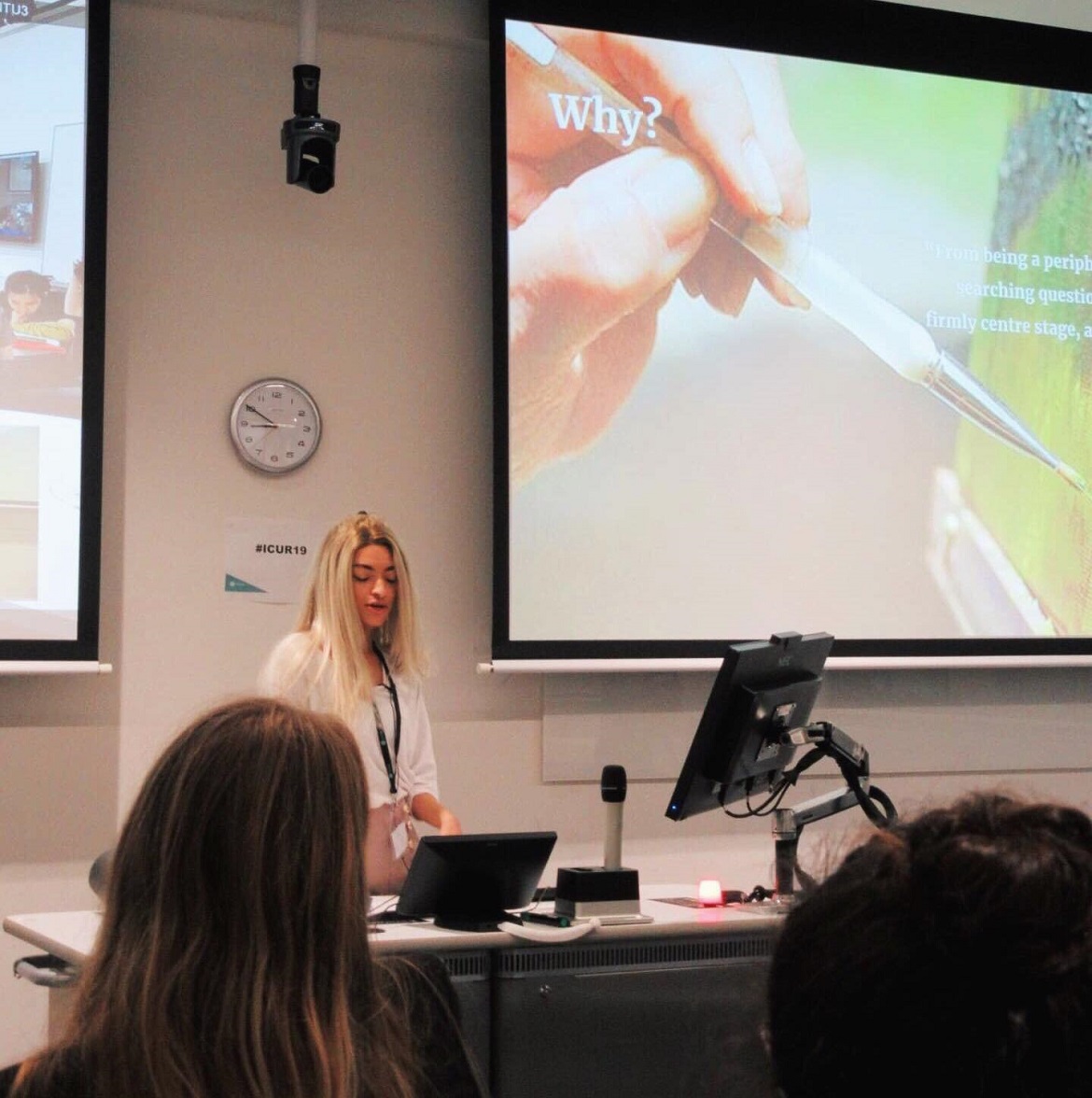
ICUR Portal
Keep up to date with the annual conference via the main ICUR website

